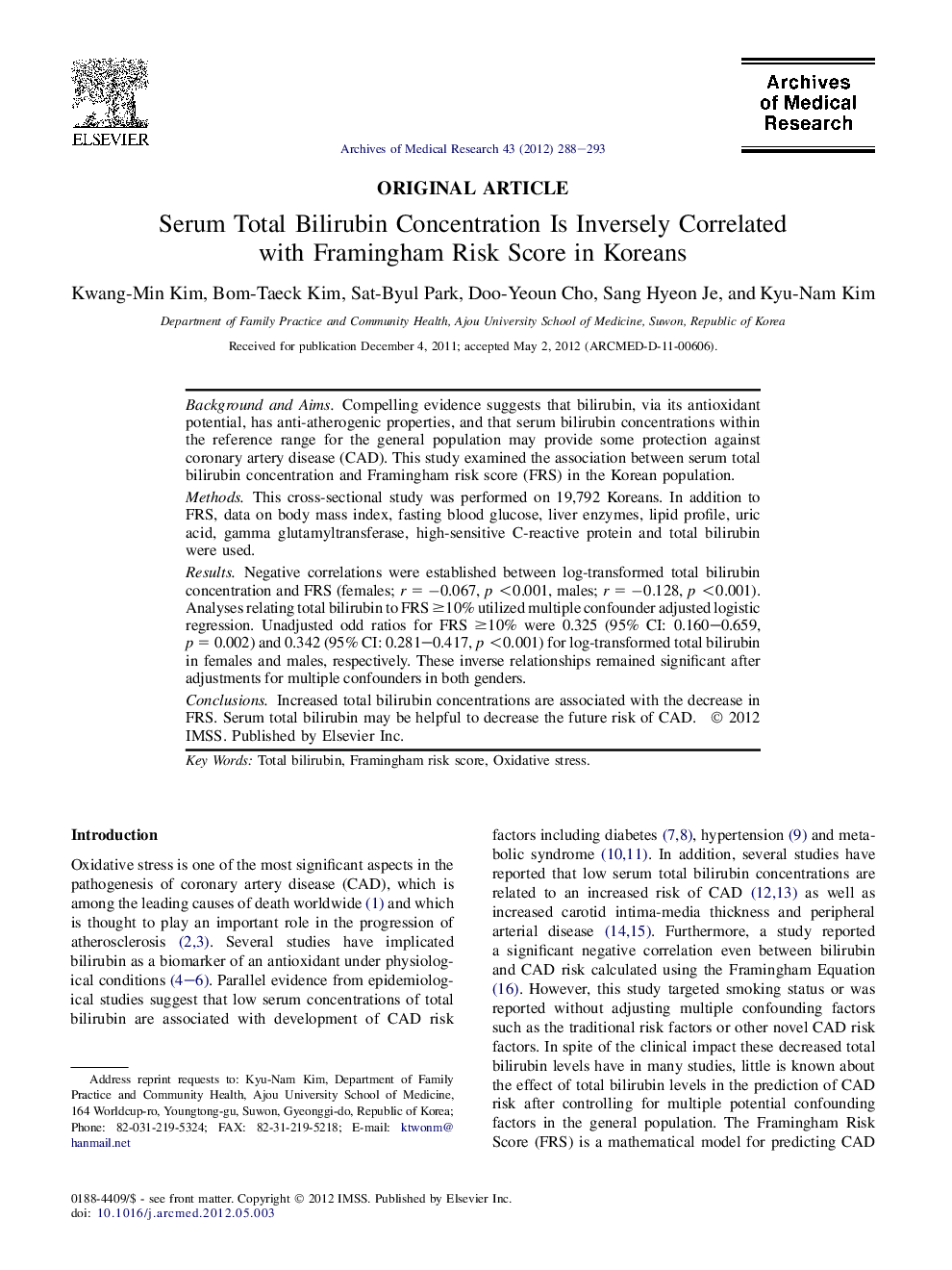| Article ID | Journal | Published Year | Pages | File Type |
|---|---|---|---|---|
| 3446822 | Archives of Medical Research | 2012 | 6 Pages |
Background and AimsCompelling evidence suggests that bilirubin, via its antioxidant potential, has anti-atherogenic properties, and that serum bilirubin concentrations within the reference range for the general population may provide some protection against coronary artery disease (CAD). This study examined the association between serum total bilirubin concentration and Framingham risk score (FRS) in the Korean population.MethodsThis cross-sectional study was performed on 19,792 Koreans. In addition to FRS, data on body mass index, fasting blood glucose, liver enzymes, lipid profile, uric acid, gamma glutamyltransferase, high-sensitive C-reactive protein and total bilirubin were used.ResultsNegative correlations were established between log-transformed total bilirubin concentration and FRS (females; r = −0.067, p <0.001, males; r = −0.128, p <0.001). Analyses relating total bilirubin to FRS ≥10% utilized multiple confounder adjusted logistic regression. Unadjusted odd ratios for FRS ≥10% were 0.325 (95% CI: 0.160–0.659, p = 0.002) and 0.342 (95% CI: 0.281–0.417, p <0.001) for log-transformed total bilirubin in females and males, respectively. These inverse relationships remained significant after adjustments for multiple confounders in both genders.ConclusionsIncreased total bilirubin concentrations are associated with the decrease in FRS. Serum total bilirubin may be helpful to decrease the future risk of CAD.
